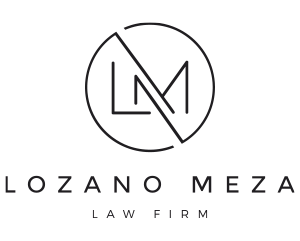Lozano Meza Law Firm is an established firm with a team of experienced litigators who zealously advocate for clients with personal injury and criminal law issues.


Practice Areas
Criminal Defense
Juvenile Law
Parole
Personal Injury
Motor Vehicle Accidents
Criminal Defense
Juvenile Law
Parole
Personal Injury
Motor Vehicle Accidents
Over 15 combined years of hard-hitting
legal advocacy dedicated to protecting clients’ rights in El Paso, TX
Collaborative, Passionate, Relatable Legal Advocates
At Lozano Meza Law Firm, our experienced attorneys understand the importance of an attorney-client relationship. They take a creative and personal approach with each client. You can expect more one-on-one face time, support, and attention. They will not judge you; instead, they will handle your case with the sensitivity and respect you deserve. This allows them to get to know you, better prepare your case and act as persuasive storytellers in court. Knowing your story inside and out is their priority, as it is crucial to creating effective strategies that will pursue successful outcomes.
Lozano Meza Law Firm is a Hispanic-owned firm, and our lawyers are bilingual in English and Spanish.
Your Experienced
Litigators
And Advocates

Cesar Lozano

Eric Meza

We Prepare Each Case As If We Are Going To Trial
Lozano Meza Law Firm attorneys are tenacious in their case preparation. They are extremely thorough in their research, attention to detail and evaluation of evidence, from medical and police reports to the cross-examination of witnesses. From the moment you meet with them, our lawyers will begin preparing your case as if it were going to trial.
If you have been injured in a motor vehicle, or 18-wheeler accident, or if someone you love was killed in an accident, you need aggressive and compassionate legal representation. Our experienced personal injury attorneys understand the severity of your pain, suffering and loss during these trying times. They will fight aggressively to hold negligent parties accountable; seek compensation to help with your medical bills, lost wages, and financial burdens; and give you the support needed while you recover.
In addition, our skilled trial attorneys will vigorously defend the fights of those facing state or federal crime charges, including murder, sexual assault, DWI/DUI, and drug charges. They can also help clients who are currently serving a prison sentence with parole matters. They will leverage their knowledge of the law and legal system to effectively negotiate and litigate on your behalf. You won’t be alone in your legal battle.
Our Client Success Stories
“The Lozano Meza Law Firm is the best Law firm in El Paso. I faced the most difficult time of my life and with their help and guidance, I was able to close that chapter of my life. Without their services, I am unsure I would be able to provide a review as they have provided me with a second opportunity in life. I will eternally be grateful to them.”
LM was very persistent in pursuing the best outcome in my case. I was greatful to walk away with a settlement that served my needs.
~Herb Zeh

Call Lozano Meza Law Firm To Set Up A Free Consultation.
Whether you are dealing with a challenging personal injury or criminal law problem, our attorneys at Lozano Meza Law Firm can help. They will empower you with their knowledge and confidentially guide you every step of the way. Let us take on your legal burden. Call Lozano Meza Law Firm at 915-706-2111 or complete our online contact form to schedule a free consultation. Our lawyers are bilingual in English and Spanish.
Our Firm Is Where Your Legal Solutions Start


